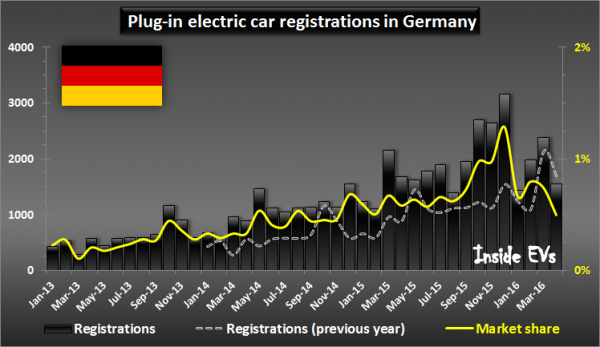An announcement by a senior German official that all new cars must be emissions-free by 2030 will give a massive boost to the lithium battery industry.
German Deputy Economy Minister Rainer Baake said combustion-engine cars will be banned as part of the country’s aim to reduce C02 emissions by 80% before 2050.
“The fact is, there’s been no reduction at all in CO2 emissions by transport since 1990,” he said at a recent forum.
Only 25,000 electric vehicles are registered on German roads to date, compared with 14.5 million diesel vehicles.
The German government is also offering subsidies to those buying EVs in the hope that by 2030, six million EVs and hybrids will be registered.
Germany may be the first European country to announce a definite ban, but it is certainly not the only one considering it.
Norway is considering a ban on petrol and diesel cars even earlier, by 2025, and in the Netherlands, the Labour Party PvdA is pushing for a ban by the same year.
The Dutch are members of the Zero-Emission Vehicle (ZEV) Alliance, which aims to make all new vehicles use electric power by the year 2050.
France, Switzerland and Belgium are also said to be considering a phase-out of petrol and diesel cars, and if enough European Union states pass laws to this effect, the EU could attempt to enforce it across all of them.
In the UK the take-up of EVs remains low, and out of 2,000 drivers asked in a survey commissioned by BMW, only 20% said their next new car would be electric.
Further afield, China and India are actively encouraging their huge populations to go electric, and one of China’s largest EV makers, BYD, tripled its EV sales last year and estimated this would double each year for the next three years.












